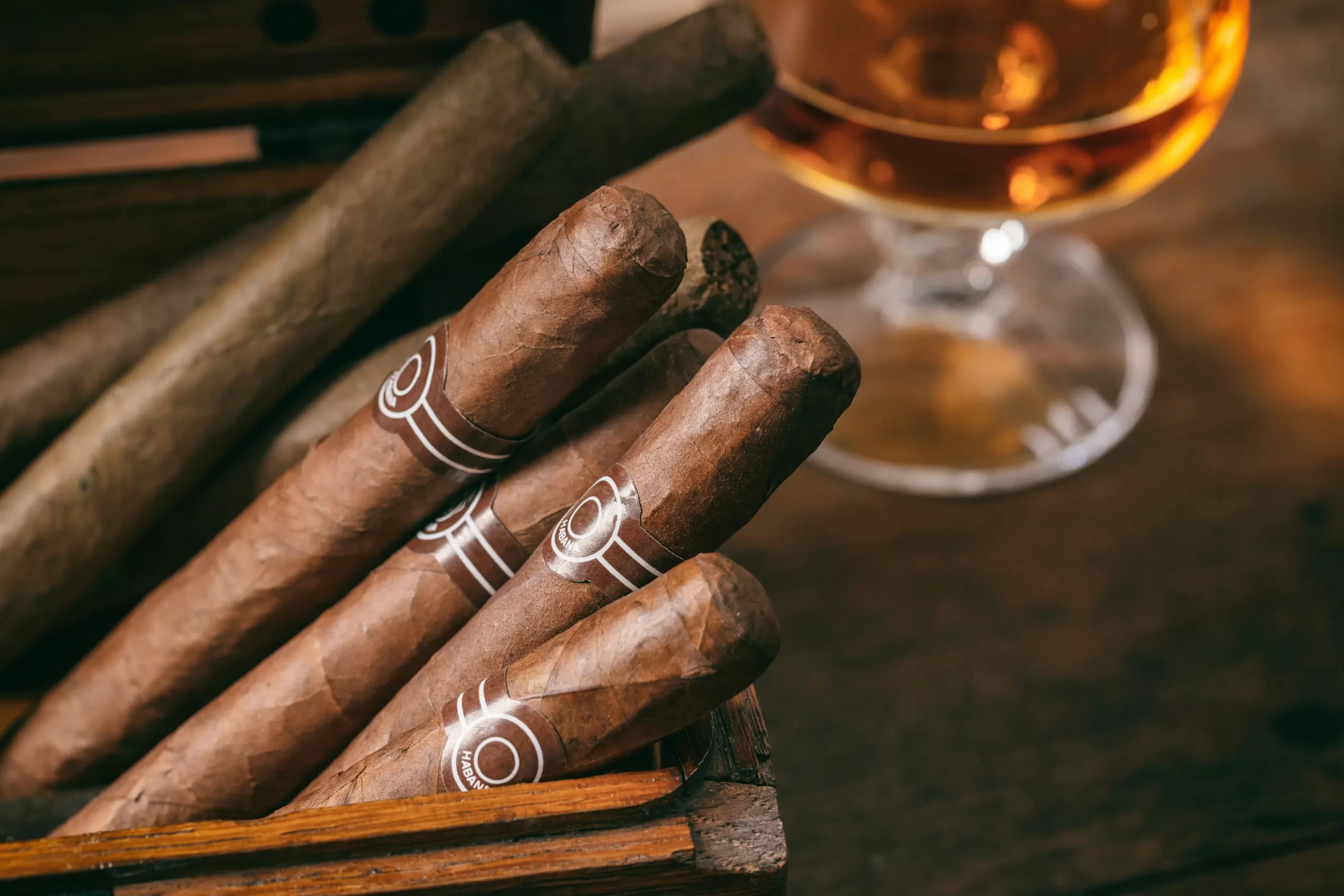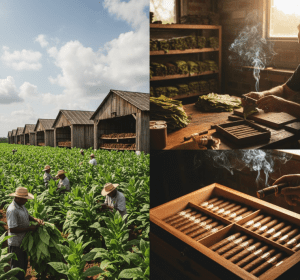When it comes to cigars, one of the most intriguing aspects is their rich flavors and aromas. Imagine lighting up a cigar and being transported to a world of earthy, spicy, or even sweet notes. But how do these flavors develop, and why do they matter when selecting the perfect cigar? In this article, we will explore the flavors and aromas of cigars, guiding you through the importance of flavor profiles, the effects of aging, the role of tobacco, and even how to pair cigars with drinks to elevate your experience.
The Importance of Flavor Profiles in Cigar Selection
When choosing a cigar, understanding flavor profiles is essential. Flavor profiles refer to the distinct tastes and aromas that a cigar can offer. Here are a few reasons why they are important:
- Personal Preference: Just like food, everyone has unique tastes. Some may prefer earthy flavors, while others lean towards spicy or sweet notes. Knowing the flavor profiles helps you select cigars that match your preferences.
- Enhanced Enjoyment: A well-chosen cigar can enhance your overall experience. For example, pairing a cigar with the right drink can elevate the flavors, creating a more enjoyable time.
- Improved Understanding: Knowing the flavor profiles of different cigars can help you become more knowledgeable in your selections, impressing friends and enhancing your appreciation for the craft of cigar making.
How Flavor Profiles Are Developed
The flavors and aromas in cigars come from several sources, including:
- Tobacco Varieties: Different types of tobacco have distinct flavor characteristics. For example, Nicaraguan tobacco often has a rich, bold flavor, while Dominican tobacco is known for its smoothness.
- Growing Conditions: The soil, climate, and even the elevation where the tobacco is grown can affect its flavor. For instance, tobacco grown in volcanic soil tends to have a unique taste profile.
- Curing and Fermentation: After harvesting, tobacco leaves undergo curing and fermentation, processes that further develop their flavors. This stage is crucial in creating the complex tastes found in premium cigars.
How Cigar Aging Affects Flavor and Aroma
Aging cigars is a common practice among enthusiasts, but how does it affect the flavors and aromas?
- Mellowing of Flavors: Over time, cigars can mellow out, resulting in a smoother smoking experience. Harsh flavors may fade, allowing the subtler notes to shine.
- Development of Complexity: Aging can lead to the development of more complex flavors. Just like fine wine, the longer a cigar is aged, the more nuanced its flavor profile becomes.
- Optimal Conditions: To age cigars properly, they need to be stored in ideal conditions, such as a controlled environment with the right humidity and temperature. This preservation allows the flavors to evolve harmoniously.
Ideal Aging Times for Different Cigars
- Short-Term Aging (1-2 years): Many cigars can benefit from a short aging period, especially those that are robust and full-bodied.
- Long-Term Aging (3+ years): Premium cigars often improve with long-term aging. However, not all cigars are meant for aging; some are best enjoyed fresh.
Popular Cigar Flavors: From Earthy to Spicy
Cigars come in a variety of flavors, each appealing to different tastes. Here are some popular flavor categories:
Earthy Flavors
- Wood: Many cigars feature wood notes, reminiscent of cedar or oak, adding a rich, natural taste.
- Earth: Earthy cigars often have a grounded flavor, providing a robust and satisfying smoke.
Spicy Flavors
- Pepper: A common note in cigars, peppery flavors can add a kick to your smoking experience.
- Cinnamon and Clove: These spices can create a warm, comforting sensation, especially in certain blends.
Sweet Flavors
- Chocolate: Some cigars have chocolate undertones, giving them a decadent feel.
- Vanilla and Cream: Sweet notes can create a smooth, creamy smoke, appealing to those who enjoy dessert-like flavors.
Understanding the Role of Tobacco in Cigar Aromas
The type of tobacco used in a cigar plays a significant role in its overall aroma. Here are the primary factors influencing tobacco aromas:
Types of Tobacco
- Filler: The interior tobacco of a cigar, which primarily determines its flavor.
- Binder: The leaf that holds the filler together, contributing to the overall taste and aroma.
- Wrapper: The outer layer of the cigar, which often has the most pronounced flavors.
Blending Techniques
Cigar makers carefully select and blend different tobacco types to create unique flavor profiles. This artistry is what sets premium cigars apart from mass-produced ones.
Pairing Cigars with Drinks to Enhance Flavor Experience
One of the best ways to elevate your cigar experience is by pairing it with the right drink. Here are some popular pairings:
Whiskey
- Bourbon: The sweetness of bourbon can complement chocolate or creamy cigars beautifully.
- Rye: The spiciness of rye whiskey pairs well with earthy or peppery cigars.
Coffee
- Espresso: The boldness of espresso enhances the rich flavors in many cigars.
- Cold Brew: A smooth cold brew can offer a refreshing contrast to heavier cigars.
Wine
- Red Wine: Full-bodied reds can match the intensity of robust cigars, creating a harmonious experience.
- Sparkling Wine: The effervescence can cleanse the palate, making it a refreshing option for lighter cigars.
FAQ
1. What are the best cigars for beginners?
Beginners should look for mild cigars with smooth flavors, such as Connecticut-wrapped cigars. These are generally easier to enjoy and won’t overwhelm the palate.
2. How can I improve my cigar tasting experience?
To enhance your experience, try pairing your cigar with complementary drinks, take time to savor the flavors, and pay attention to the cigar’s construction.
3. Can cigars expire?
Cigars don’t technically expire, but they can dry out or lose flavor if not stored properly. Keeping them in a humidor helps maintain their quality.


